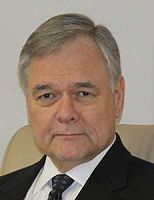
The Coleman Elder Law and Estate Planning Center
Elder Law - Medicaid Planning - Estate Planning - Wills - Trusts - Probate- Power of Attorney
Let Our 30+ Years of Experience Help You Achieve Peace of Mind!
10161 Centurion Parkway N., Suite 310
Jacksonville, Florida 32256
(904) 448-1969
Main Navigation
The following frequently asked questions and asnwers will help you understand the use of a last will and testament.
1. WHAT IS A LAST WILL AND TESTAMENT
2. WHAT CAN BE ACCOMPLISHED BY A LAST WILL AND TESTAMENT?
3. WHAT HAPPENS WHEN THERE IS NO LAST WILL AND TESTAMENT?
4. MAY A PERSON DISPOSE OF HIS OR HER PROPERTY IN ANY WAY HE OR SHE WISHES BY A LAST WILL AND TESTAMENT?
5. MUST A PERSON LEAVE A CHILD AT LEAST ONE DOLLAR?
6. HOW LONG IS A LAST WILL AND TESTAMENT GOOD?
7. DOES A LAST WILL AND TESTAMENT INCREASE PROBATE EXPENSES?
8. ARE ESTATES BY ENTIRETIES OR JOINT TENANCY WITH RIGHT OF SURVIVORSHIP SUBSTITUTES FOR A LAST WILL AND TESTAMENT?
9. IS A LIFE INSURANCE PROGRAM A SUBSTITUTE FOR A LAST WILL AND TESTAMENT?
10. IS A TRUST A SUBSTITUTE FOR A LAST WILL AND TESTAMENT?
11. DO YOU HAVE TO GO TO COURT TO PROBATE A LAST WILL AND TESTAMENT?
12. CAN A LAST WILL AND TESTAMENT REDUCE TAXES?
13. WHO SHOULD PREPARE A LAST WILL AND TESTAMENT?
14. SOME SUGGESTIONS CONCERNING WILLS
The following frequently asked questions and answers will help you understand the advantages of the revocable living trust.
1. WHAT IS A REVOCABLE TRUST?
2. WHAT IS FLORIDA PROBATE?
3. ARE ALL ASSETS SUBJECT TO FLORIDA PROBATE?
4. HOW DOES A REVOCABLE TRUST AVOID FLORIDA PROBATE?
5. HOW DO I KNOW IF MY ASSETS ARE PROPERLY TITLED TO MY REVOCABLE TRUST?
6. CAN THE REVOCABLE TRUST HOLD TITLE TO MY EXEMPT FLORIDA
7. DO I BENEFIT BY AVOIDING PROBATE IN FLORIDA?
8. HOW ARE ESTATE CREDITORS SATISFIED?
9. DOES THE REVOCABLE TRUST PROVIDE PROTECTION FROM CREDITOR CLAIMS?
10. DOES THE REVOCABLE TRUST PROVIDE PROTECTION FROM THE FLORIDAA SPOUSAL ELECTIVE SHARE?
11. WHO PAYS FEDERAL INCOME TAX ON REVOCABLE TRUST INCOME?
12. DOES A REVOCABLE LIVING TRUST SAVE ESTATE TAXES?
13. WHAT ARE THE TRUSTEE'S RESPONSIBILITIES FOR A REVOCABLE TRUST?
14. WHO MAY ACT AS TRUSTEE OR SUCCESSOR TRUSTEE OF A REVOCABLE TRUST?
15. HOW DO I KNOW WHAT KIND OF ESTATE PLANNING OR TRUSTS I NEED?
A will is a written direction controlling the disposition of property at death. The laws of each state set the formal requirements for a legal will. In Florida;
1. You, the maker of the will (called the testator), must be at least 18 years old.
2. You must be of sound mind at the time you sign your will.
3. Your will must be written.
4. Your will must be witnessed and notarized in the special manner provided by law for wills.
5. It is necessary to follow exactly the formalities required for the execution of a will. An estate planning lawyer can assist you in ensuring that the formalities required for a valid will are properly followed.
6. To be effective, your will must be proved in and allowed by the probate court. A "self-proved" will allows for the probate court to immediately allow the will's admission to probate. A wills and trusts lawyer or attorney can assist you in self-proving your will.
No will becomes final until the death of the testator, and it may be changed or added to by the testator by drawing a new will or by a "codicil," which is simply an addition or amendment executed with the same formalities of a will. A will's terms cannot be changed by writing something in or crossing something out after the will is executed. In fact, writing on the will after its execution may invalidate part of the will or all of it.
2. WHAT CAN BE ACCOMPLISHED BY A LAST WILL AND TESTAMENT?
1. You decide who gets your property instead of the Florida intestacy law making the choice for you.
2. You may name the personal representative (executor) of your will as you choose, provided the one named can qualify under Florida law. A personal representative is one who manages an estate, and may be either an individual or a bank or trust company, subject to certain limitations.
3. A trust may be created in a will whereby the estate or a portion of the estate will be kept intact with income distributed or accumulated for the benefit of members of the family or others. Minors can be cared for without the expense of proceedings for guardianship of property.
4. Real estate and other assets may be sold without court proceedings, if your will adequately authorizes it.
5. You may make gifts, effective at or after your death, to charity.
6. You decide who bears any tax burden, rather than the law making that decision.
7. A guardian may be named for minor children.
3. WHAT HAPPENS WHEN THERE IS NO LAST WILL AND TESTAMENT?
If you die without a will (this is called dying "intestate"), your property will be distributed to your heirs according to a formula fixed by law. Your property does not go to the State of Florida unless there are absolutely no heirs at law, which is very unlikely. In other words, if you fail to make a will, the inheritance statute determines who gets your property. The inheritance statute contains a rigid formula and makes no exception for those in unusual need.
When there is no will, the court appoints a personal representative, known or unknown to you, to manage your estate. The cost of probating may be greater than if you had planned your estate with a will, and the administration of your estate may be subject to greater court supervision.
If you would like the assistance of an estate planning attorney with more than 30 years experience to work with you to create a last will and testament that achieves your goals and desires, and deals with your concerns, please call your Jacksonville estate planning attorney at (904) 448-1969, or toll free at 866-510-9099, or email us at Info@ColemanElderLaw.com.
4. MAY A PERSON DISPOSE OF HIS OR HER PROPERTY IN ANY WAY HE OR SHE WISHES BY A LAST WILL AND TESTAMENT?
While any sort of property may be transferred by will, there are some particular interests in property which cannot be willed because the right of the owner terminates automatically upon his or her death, or others have been granted rights in the property by Florida law. Some examples of these types of property rights or interests are:
• Except in certain very specific circumstances a homestead (that is, the residence and adjoining lands owned by a person who is survived by a spouse or minor child up to one-half acre within limits of an incorporated city or town or up to 160 acres outside those limits);
• A life estate : property owned only for the life of the owner;
• Any property owned jointly with another person or persons with right of survivorship (a tenancy by the entireties, which is limited to joint ownership between a husband and wife, would be one of these).
A person may not disinherit his or her spouse without a properly executed marital agreement. The law gives a surviving spouse a choice to take either his or her share under the will or a portion of the decedent's property determined under Florida's "elective share" statute. This statute uses a formula to compute the size of the surviving spouse's elective share, which includes amounts stemming from the decedent's jointly held and trust property, life insurance, and other non-probate assets. Because this formula is very complicated, it is usually necessary to refer this matter to an attorney with extensive experience in this area of law. Also, if your will was made before the marriage and the will does not either provide for the spouse or show your intention not to provide for him or her, then your spouse would receive the same share of your estate as if you had died without a will (at least one-half of your estate) unless provision for the spouse was made or waived in a marital agreement.
5. MUST A PERSON LEAVE A CHILD AT LEAST ONE DOLLAR?
No. This is not necessary and can actually cause considerable added expense to the estate. It is better simply to state in the will that no provision is being made for that child.
6. HOW LONG IS A LAST WILL AND TESTAMENT GOOD?
It is "good" until it is changed or revoked in the manner required by law. Your will may be changed as often as you desire while you are sane and not under undue influence, duress, or fraud, provided it is changed in the required manner. Changes in circumstances after the execution of the will, such as tax law amendments, deaths, marriage, divorce, birth of children, or even a substantial change in the nature or amount of your estate, may raise questions as to the adequacy of your will. All changes require a careful analysis and reconsideration of all the provisions of your will and may make it advisable to change the will to conform to the new situation.
7. DOES A LAST WILL AND TESTAMENT INCREASE PROBATE EXPENSES?
No. If there is property to be administered or taxes to be paid or both, the existence of a will does not increase probate expenses. A will frequently reduces expenses. If there is real or personal property to be transferred at your death, the probate court will have jurisdiction to ensure that it is transferred properly, either according to your will, or, if there is no will, in accordance with the inheritance statute. Thus, even if you have no will, your heirs must go to court to administer your estate, obtain an order determining your legal heirs, or obtain a determination that administration is unnecessary. These procedures are often more expensive than administering your will, since a properly drawn will names the beneficiaries and delineates procedures to simplify the administration process.
8. ARE ESTATES BY ENTIRETIES OR JOINT TENANCY WITH RIGHT OF SURVIVORSHIP SUBSTITUTES FOR A LAST WILL AND TESTAMENT?
Joint tenancies with rights of survivorship can be established when two or more persons title bank accounts and other assets in their multiple names with the intent to have ownership pass directly to the surviving named owners when one dies. A "tenancy by the entireties" is much the same but involves only married persons. These forms of joint ownership can avoid probate of the account or other asset when an owner dies. While this can be very efficient in some cases, use of joint ownership can be fraught with problems at death and cause more problems than it solves.
Among other unforeseen problems, indiscriminate use of joint ownership can cause an increase in estate taxes over the joint lives of married persons, force double probates in the event of simultaneous deaths, create unfairness as to who pays for funeral expenses and claims against the decedent, raise undesired exposure during life to the debts of co-owners, and cause a shortage of funds for payment of estate taxes which can cause litigation with the taxing authorities.
9. IS A LIFE INSURANCE PROGRAM A SUBSTITUTE FOR A LAST WILL AND TESTAMENT?
No. Life insurance is only one kind of property that a person may own and a will is necessary to dispose of other assets that a person owns at death. If a life insurance policy is payable to an individual, the will of the insured has no effect on the proceeds. If the policy is payable to the estate of the insured, the disposition of the proceeds may be directed by the will. Life insurance can be useful in providing cash at death for payment of taxes and expenses, but like most strategies for insurance, the careful person will consult an experienced estate planning lawyer, a life insurance counselor, and a financial advisor. Mistakes in ownership and beneficiary designations in these policies can cause great increases in estate taxes owed.
10. IS A TRUST A SUBSTITUTE FOR A LAST WILL AND TESTAMENT?
No, in most situations. A trust may be used in addition to a will. This is because a trust can handle only the property that has been put into it. Any property of a person that is not placed in the trust either during life or at death in most instances escapes the control of the trust. It is the will that controls all property in a decedent's name at the time of death if the will is drafted properly. Trusts can be helpful to speed administration and save taxes if they are drafted properly and funded during life with the property intended to be transferred by the trust. Often, however, improperly drafted or incorrectly funded or administered trusts can add to the cost of settling estates, not lower it. Furthermore, it is the probate of the will that can clear creditors' claims, which is not possible with just a trust administration.
11. DO YOU HAVE TO GO TO COURT TO PROBATE A LAST WILL AND TESTAMENT?
No, personal court appearances are usually not needed to probate a will. However, documents must be filed with the court to procure a probate order and administer estates. In most counties, neither the estate's probate attorney nor the interested persons ever appear in the courtroom. We can assist you with how to file probate in Florida. Please call us toll free at 1-866-510-9099.
12. CAN A LAST WILL AND TESTAMENT REDUCE TAXES?
A well-drawn will can reduce estate and income taxes that may arise when someone dies. Estate taxes are often by far the largest cash expense an estate can have. There is also the possibility that Congress may increase the impact of the estate tax in the future. In addition, proper planning must be made for income tax advantages. Proper planning with a will is indispensable in taking these benefits in the tax codes. An experienced estate planning lawyer or attorney can help you ensure that you take advantage of all of the tax planning options that are available to you when you draft your will.
13. WHO SHOULD PREPARE A LAST WILL AND TESTAMENT?
No sensible person would employ "just anyone" to fill teeth, take out an appendix, or deliver a baby. The person who wants these services performed skillfully with the minimum risk to health, life, property, or the accurate execution of his or her wishes, will engage the services of a trained person. Except in dire emergency, these important tasks should not be performed by anyone except the professional.
The drafting of a will involves making decisions that require professional judgment which can be obtained only by years of training, experience, and study. Only the practicing estate planning lawyer can avoid the innumerable pitfalls and advise the course best suited for each individual situation. In addition, an experienced estate planning attorney will be able to coordinate the use of other skilled professionals, such as an investment advisor, actuary, insurance specialist, and tax accountant to complete a proper estate plan. If you would like the assistance of an estate planning attorney with more than 30 years experience to work with you to create a last will and testament that achieves your goals and desires, and deals with your concerns, please call your Palm Coast estate planning attorney at (904) 448-1969, or toll free at 866-510-9099, or email us at Info@ColemanElderLaw.com.
Moreover, there is no such thing as a “simple will.” Even smaller estates can have complexities only foreseeable by the experienced estate planning attorney.
14. SOME SUGGESTIONS CONCERNING WILLS
1. Marriage does not cancel a will in Florida, but a spouse acquired after the execution of a will may receive the same portion of your estate that he or she would have received had you died without a will (at least one-half).
2. If you have moved to Florida from another state, it is wise to have your will reviewed by a Florida lawyer in order to be sure that it is properly executed according to the laws of Florida, that the witnesses are readily available to prove your will in Florida, and that your personal representative is qualified to serve in Florida.
3. Before your will is effective to dispose of your property, it must be proved in the probate court. If the will is self-proving and otherwise valid, it may be admitted to probate without further proof. If the will is not self-proving, it generally must be proved by the oath of one of the witnesses. The oath must be given before a circuit judge, clerk of court, or a commissioner specially appointed by the court for that purpose. (Under certain circumstances, the court may permit the will to be proved by other means permitted by law.) A will can be made self-proving either at the time of its execution or later, which saves the time and expense of locating a witness and obtaining his or her oath after your death. For your will to be made self-proving, you must acknowledge the will before an officer authorized to administer oaths; the witnesses must make affidavits before the officer; and the officer must evidence the acknowledgment and affidavits by a certificate attached to or following the will. An appropriate form of certificate is prescribed by Florida law. The self-proving procedure is in addition to the normal execution and witnessing of the will, not in place of it.
4. No matter how perfect a will may be prepared for you, unless it is properly executed in strict compliance with the laws of Florida, the will may be entirely void. Be sure that you execute your will in the presence of your wills and trust attorney, who knows exactly how and in what order the will should be signed.
5. Every person owning property who wishes to exercise control in the disposition of that property when he or she dies, should have a will regardless of the value of the property. Of course, the larger the estate the greater the tax consequences.
6. The following additional documents should be considered for signing when you make your will:
• Living Will: Florida Statutes now provide for a written declaration by an individual specifying directions as to use of life-prolonging procedures.
• Durable Power of Attorney: This document can assist in handling the property of a person who has become incapacitated without having to open a guardianship proceeding in court. This is especially valuable for paying the bills and protecting the assets of an incapacitated person.
• Health Care Surrogate: Florida law now allows individuals to designate a person to make health care decisions for them when the individual may not be able to do so. Included in this important appointment is the power to decide when to withdraw medical procedures.
• Pre-Need Guardian Designation: Florida law allows you to designate a person who could be appointed guardian over you should you become incapacitated and/or over your children should you become incapacitated or upon your death. If you fail to designate a guardian, the Court will do so for you if and when it becomes necessary.
If you need an estate planning attorney in Jacksonville, Florida, please call The Coleman Law Firm toll free at 866-510-9099.
This material represents general legal advice. Since the law is continually changing, some provisions may be out of date. It is always best to consult an experienced estate planning attorney about your legal rights and responsibilities regarding your particular case.
The Revocable Trust in
 What is a revocable living trust?
What is a revocable living trust?
More Video Answers to Estate Planning FAQs - Here
The revocable living trust, or “living” trust can be a means of avoiding probate and saving taxes at death. The revocable trust has certain advantages over a traditional last will and testament, but there are many factors to consider before you decide if a Florida revocable living trust is best suited to your overall estate planning needs and objectives. The experienced Florida estate planning lawyers and and revocable trust attorneys at the Coleman Law Firm, in Jacksonville, Florida, can help you evaluate the appropriateness of a revocable living trust within the scope of your total estate planning needs. Go here for Answers to FAQs About Revocable Living Trusts.
 Why should I consider creating a revocable trust?
Why should I consider creating a revocable trust?
If you need the assistance of a Florida wills and trusts attorney for a revocable living trust or estate planning, please contact your Jacksonville attorney for revocable living trusts at 904-448-1969, toll free at 888-492-2468, or email is at Info@TheColemanLawFirm.net.
1. WHAT IS A REVOCABLE LIVING TRUST?
A revocable trust is a document (the “trust agreement”) created by you or your estate planning attorney to manage your assets during your lifetime and distribute the remaining assets after your death. The person who creates a trust is called the “grantor” or “settlor.” The person responsible for the management of the trust assets is the “trustee.” You can serve as trustee, or you may appoint another person, bank or trust company to serve as your trustee. The trust is “revocable” since you may modify or terminate the trust during your lifetime, as long as you are not incapacitated. Because of the complexity of a living trust, and the need to transfer your assets to the trust for it to be effective, it is best to obtain legal advice from an experienced trust lawyer when planning your revocable living trust.
During your lifetime the trustee invests and manages the trust property. Most revocable living trust agreements allow the grantor, or settlor, (you) to withdraw money or assets from the revocable living trust at any time, and in any amount. If you become incapacitated, the trustee is authorized to continue to manage your living trust assets, pay your bills, and make investment decisions during your incapacity. This may avoid the need for a court-appointed guardian of your property in the event of your incapacity. This is one of the advantages of a revocable trust. To learn more about the reasons for avoiding a court-appointed guardian contact your Jacksonville lawyer for revocable living trusts in Florida to determine how a revocable living trust lawyer or attorney at the Coleman Law Firm, in Jacksonville, Florida can assist you with achieving your goals..
Upon your death, the trustee (or your successor if you were the initial trustee) is responsible for filing a "Notice of Trust", paying all claims and taxes, and then distributing the trust assets to your trust beneficiaries as described in the revocable living trust agreement. The trustee’s responsibilities at your death are discussed below. If you are the successor trustee of such an agreement, you should consult with your Jacksonville lawyer to see how to handle the treatment of your responsibilities as trustee.
 What does it mean to fund a trust?
What does it mean to fund a trust?
Your assets, such as bank accounts, real estate and investments, must be formally transferred to the trust before your death to get the maximum benefit from the trust. This process is called “funding” the trust and requires changing the ownership of the assets to the trust. Assets that are not properly transferred to the trust may be subject to probate. However, certain assets should not be transferred to a trust because income tax issues may arise. You should consult with your Florida estate planning attorney, tax adviser and investment adviser to determine if your assets are appropriate for trust ownership. If you would like the assistance of your Jacksonville revocable living trust lawyer or estate planning attorney, please contact the Coleman Law Firm by email , or by telephone at 904-448-1969 or toll free at 866-510-9099, so that we can assist you in making the determination of whether the revocable living trust is appropriate for your circumstances. (Back to the Top)
2. WHAT IS FLORIDA PROBATE?
Probate is the court-supervised administration of a decedent’s estate. It is a process created by state law to transfer probate assets from the decedent’s name to his or her beneficiaries or heirs. A personal representative is appointed to handle the Florida probate estate administration. The Florida probate process ensures that creditors, taxes and expenses are paid before distribution of the estate assets to the beneficiaries of the probate estate. The personal representative is accountable to the Florida probate court as well as the estate beneficiaries for his or her actions during the Florida probate administration. For probate estates having less than $75,000 of non-exempt assets,
3. ARE ALL ASSETS SUBJECT TO FLORIDA PROBATE?
No, only assets owned by a decedent in his or her individual name require probate. Assets owned jointly as “tenants by the entirety” with a spouse, or “with rights of survivorship” with a spouse or any other person will pass to the surviving owner without probate. This is also true for assets with designated beneficiaries, such as life insurance, retirement accounts, annuities, and bank accounts and investments designated as “pay on death” or “in trust for” a named beneficiary. Assets held in a revocable trust will also avoid probate. However, the use of joint ownership and beneficiary designations may create other adverse consequences within the context of your overall estate plan.
For instance, joint tenancy property, because it is automatically transferred to the surviving owner at the death of one owner, is not available for the decedent's federal estate tax exemption. For a couple with a taxable estate (over $10,8460,000 based on current law after December 31, 2015), having all of their property jointly owned, with rights of survivorship, could result in the beneficiaries of the estate incurring as much as 40% of the value of the asset in unnecessary estate taxes. Before you rely exclusively on joint tenancy or beneficiary designations to avoid probate, please contact an experienced revocable living trust lawyer or estate planning attorney at The Coleman Law Firm to learn how it may impact your potential estate tax obligation. (Back to the Top)
4. HOW DOES A REVOCABLE TRUST AVOID FLORIDA PROBATE?
A revocable living trust avoids probate by effecting the transfer of assets during your lifetime to the trustee. This avoids the need to use the probate process to make the transfer after your death. The trustee has immediate authority to manage the trust assets at your death; appointment by the Florida probate court is not necessary. However, the trustee of the revocable trust has no authority over assets that are not titled to the revocable trust.
The “funding” of a revocable trust is critical to successfully avoid probate. Those persons who do not fully fund their revocable trusts often need both a Florida
 Is it quicker and cheaper to settle an estate in which a revocable living trust was used rather than just a will?
Is it quicker and cheaper to settle an estate in which a revocable living trust was used rather than just a will?
5. HOW DO I KNOW IF MY ASSETS ARE PROPERLY TITLED TO MY REVOCABLE TRUST?
The account statement, stock certificate, title or deed will make some reference to the revocable living trust or to you as trustee, and should include the date of the revocable living trust. You might also elect to fund your trust by naming the trust as a beneficiary of life insurance or other similar arrangements. Your Florida estate planning attorney and financial adviser may assist you with the transfer of assets to your trust to ensure that your assets are properly titled. If your trust will own real estate then it is important to have the deed prepared by an experienced Florida estate planning attorney or revocable living trust lawyer. The trusts attorney will consider the impact of existing mortgages, title issues and any exempt Florida homestead restrictions when the deed is prepared and recorded with the Florida circuit court clerk. A deed transferring real property to a revocable living trust should have special language not commonly found in deeds that will help ensure that the trustee of the revocable trust can transfer the real property out of the revocable trust in the future without creating real property title issues. If you would like to have your existing revocable living trust, to the titling of your assets to your revocable living trust, reviewed by an experienced revocable living trust or estate planning lawyer or attorney, please contact your Jacksonville lawyer for trusts at the Coleman Law Firm, in Palm Coast, Florida, to schedule a no cost-no obligation consultation. For an appointment please call (904) 448-1969, or toll free at 866-510-9099. (Back to the Top)
6. CAN THE REVOCABLE LIVING TRUST HOLD TITLE TO MY EXEMPT FLORIDA
In some situations your exempt Florida homestead property can be transferred to your revocable trust. Most
7. DO I BENEFIT BY AVOIDING FLORIDA PROBATE?
 What benefits does a trust offer?
What benefits does a trust offer?
Avoiding Florida probate may lower the cost of administering your estate and time delays associated with the Florida probate process. However, many of the costs and time delays associated with Florida probate, such as filing a federal estate tax return, will also be necessary with a revocable living trust. The administration of a revocable trust after death is similar to a probate administration. The trustee must collect and value the trust assets, determine estate creditors and trust beneficiaries, pay taxes and expenses, and ultimately distribute the trust estate to the trust beneficiaries. A trustee of a revocable trust is entitled to a trustee's fee for administration of the living trust, as is the personal representative of a Florida probate estate. To the extent professional services of trusts attorneys, accountants and estate liquidators are used to complete the trust administration process, the savings may be marginal.
On the other hand, avoiding probate in multiple states is a definite benefit. Because of the nature of real estate, probate is usually required in every state in which you own real estate. This can usually be avoided by transferring ownership of the real estate to your living trust during your lifetime. (Back to the Top)
8. HOW ARE ESTATE CREDITORS SATISFIED?
9. DOES THE REVOCABLE LIVING TRUST PROVIDE PROTECTION FROM CREDITOR CLAIMS?
 Does a revocable trust protect my assets from my creditors?
Does a revocable trust protect my assets from my creditors?
In
10. DOES THE REVOCABLE TRUST PROVIDE PROTECTION FROM THE FLORIDA SPOUSAL ELECTIVE SHARE?
11. WHO PAYS FEDERAL INCOME TAX ON REVOCABLE TRUST INCOME?
In most instances, the revocable living trust is ignored for federal income tax purposes during the grantor’s lifetime. The income and deductions are reported directly on the grantor's or settlor's individual income tax return as if the revocable trust did not exist. The revocable living trust will use the grantor's or settlor's social security number as its tax identification number.
A revocable trust becomes a separate entity for federal income tax purposes when it becomes an irrevocable trust at your death, or stops reporting income under your social security number for any other reason. The trustee of the revocable trust is then required to file an annual fiduciary income tax return (Form 1041). Taxable income, deductions and credits are determined in much the same way as for an individual. Trusts are also allowed a deduction for distributions to trust beneficiaries. In this way, the trust passes on income and deductions to the trust beneficiaries to be taxed on their personal income tax returns. Income that is not distributed to the trust beneficiaries is taxable to the trust at rates that are higher than individual rates. (Back to the Top)
12. DOES A REVOCABLE LIVING TRUST SAVE ESTATE TAXES?
Revocable living trusts are often credited with saving estate taxes, or death taxes, but this is not entirely accurate. Your retained interest and power over the revocable living trust assets will cause the revocable trust to be included in your taxable estate at death. The revocable living trust can be drafted to minimize the effect of estate taxes, but the same estate planning techniques are available to persons who choose to use a last will and testament as those who choose a revocable living trust. (Back to the Top)
13. WHAT ARE THE TRUSTEE'S RESPONSIBILITIES WITH A REVOCABLE LIVING TRUST?
 What is a trustee?
What is a trustee?
Serving as trustee of a revocable living trust or an irrevocable trust is no simple task. While very important, the prudent investment of trust assets is not a trustee’s only responsibility in trust administration. Your trustee’s exact powers and duties will depend on the instructions in your revocable living trust agreement. But, in general, the trustee of your revocable living trust will:
- Hold trust property
- Invest the trust assets
- Distribute trust income and/or principal to the trust beneficiaries, as directed in the trust agreement
- Make tax decisions concerning the trust
- Keep records of all trust transactions
- Issue statements of account and tax reports to the trust beneficiaries
- Answer any questions you and the trust beneficiaries may have concerning the trust or the administration of the revocable living trust
Your trustee may have broad powers or very limited powers based on the directions and powers your have given the trustee in the revocable trust document. In either case, your trustee is a fiduciary and must follow a strict standard of care, called a fiduciary duty, when performing trust administration functions. An experienced living trust lawyer or attorney can provide counsel regarding the trustee's fiduciary duties. If you would like additional information about trust administration involving a revocable living trust, click here. (Back to the Top)
14. WHO MAY ACT AS TRUSTEE OR SUCCESSOR TRUSTEE OF THE REVOCABLE LIVING TRUST?
The choice of a trustee is extremely important, and may have tax consequences. You can name almost anyone as your trustee. Unlike the appointment of a personal representative of a probate estate, a trustee does not have to live in
15. HOW DO I KNOW WHAT ESTATE PLANNING OR TRUSTS I NEED?
 How can I ensure my trust fulfills my intended goals?
How can I ensure my trust fulfills my intended goals?
This information is intended to give you a basic understanding of revocable living trusts under Florida trust law and the Florida trust code, but it cannot substitute for a thorough review with your Florida estate planning attorney or revocable living trust attorney. A revocable trust must be implemented as part of an overall estate plan. Ownership or titling of assets must be coordinated between the individual grantor or settlor of the trust and the revocable living trust. Decisions must be made as to what assets are appropriate to fund the revocable trust, the transfers must then occur, and the trust asset allocation should be periodically reviewed. Tax considerations must be discussed with qualified tax professionals including estate planning lawyers or attorneys. The living trust agreement should reflect your family, economic, personal, and tax goals. A revocable trust can help you accomplish these estate planning goals when properly prepared and implemented with the assistance of an experienced Florida estate planning attorney or lawyer.
If you would like a initial consultation with an experienced revocable living trust, asset protection, or estate planning lawyer or attorney to explore how a revocable living trust may assist you in achieving your estate planning goals, please contact your Jacksonville lawyer for revocable living trusts at 904-448-1969, toll free at 866-510-9099, or email The Coleman Law Firm, in Jacksonville, Florida, to schedule your consultation. (Back to the Top)

